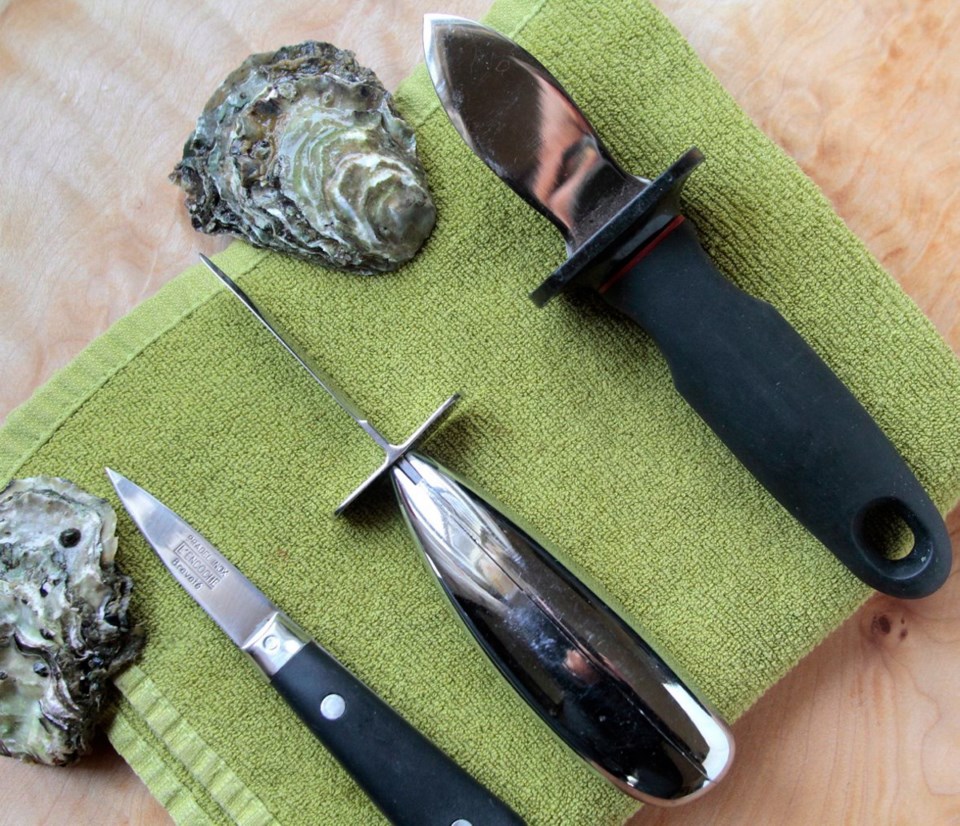The Canadian Food Inspection Agency has announced a recall of B.C. oysters harvested for eating raw, because of possible contamination by food-poisoning bacterium.
The Canada-wide federal recall applies to oysters harvested for the raw market before Tuesday because they may contain the bacterium Vibrio parahaemolyticus.
The recall follows a move Monday by the Vancouver Coastal Health Authority to ban restaurants in its area (most of the Lower Mainland and Sunshine Coast) from selling raw oysters, also because of possible Vibrio contamination.
The bacterium can result in a gastro-intestinal infection with symptoms that include crampy diarrhea and possible fever. Symptoms normally clear up within four to 96 hours. Cooking destroys the bacteria, making the oysters safe to eat.
The B.C. shellfish industry has agreed to the recall. Anybody with raw-market oysters should return any harvested prior to Tuesday for a refund.
Oysters intended for raw consumption are harvested, transported and sold live, still in their shells. Restaurants or other buyers shuck and prepare the oysters for eating on site.
Oysters harvested for their meat are shucked by a processor, packaged and shipped to sellers. The package usually bears a note indicating they are not meant for raw consumption.
Roberta Stevenson, executive director of the B.C. Shellfish Growers’ Association, said the raw market is a major part of the yearly $32-million industry. In Vancouver alone, about $50,000 worth of raw product is sold every day.
The recall is a “huge economic hit for our growers, for sure,” said Stevenson, whose group counts 130 members, about 80 per cent of the B.C. industry.
Meanwhile, raw oysters are still on the menu at Ferris’ Oyster Bar and Grill in Victoria, but they are not from B.C. Instead, the restaurant has taken extra effort and expense to have oysters flown in from Prince Edward Island.
Owner Tom Ferris said the restaurant stopped selling West Coast oysters several days ago after a visit from a health official.
The Vancouver Island Health Authority visited restaurants and told them it was necessary to post a warning poster about eating raw oysters and to advise customers of possible dangers. Unlike the Vancouver Coastal Health Authority, it did not insist on a ban on selling oysters to be eaten raw.
“We just want to make sure we can give people the oyster experience,” Ferris said. “And there is no hint of any Vibrio going on in Prince Edward Island.”
The bacterium occurs naturally off the B.C. coast, normally in numbers too low to cause any harm. But when the water heats up, the number of Vibrio bacteria increases. Oysters feed by drawing in sea water and filtering it for small organisms for food; the bacterium collects in their guts. When the oyster is eaten, people can get sick.
The federal recall is the latest move in a series of Vibrio alarm bells, warnings and bans for the B.C. shellfish industry during this warm summer.
On July 31, the B.C. Centre for Disease Control put out a warning about eating raw shellfish, such as oysters, because of 35 Vibrio cases. On Wednesday, the number of laboratory-confirmed cases of illness linked to the bacterium was at 53.
But Marsha Taylor, epidemiologist with the B.C. Centre for Disease Control, said the numbers of confirmed cases are normally far fewer than the number of total cases, as most people simply treat themselves for the symptoms and wait until they pass. Only a few go to a doctor, get tested and are diagnosed.
Meanwhile, Ferris said everything should be back to normal by September. An old saw holds that oysters should not be eaten in months that don’t contain an R in the name. “We just have to wait for those waters to chill out a bit because it has been a very long, unusually hot, dry summer,” he said.



